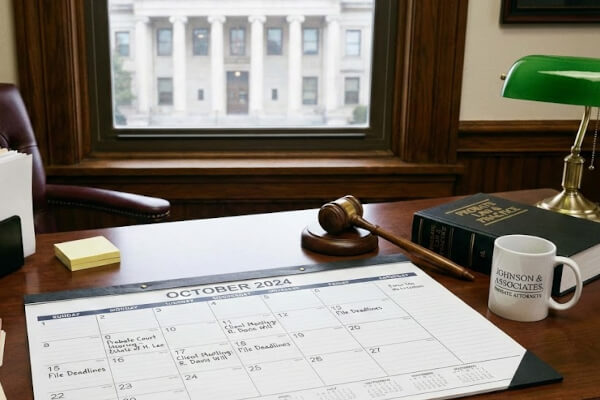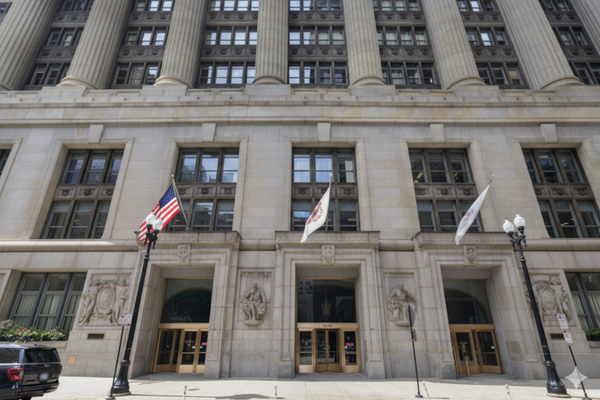Avoid These Common Probate Mistakes That Can Delay the Probate Process

Table of Contents
- 1. Failing to Communicate with Beneficiaries
- 2. Not Following the Terms of the Will (if there is one)
- 3. Delaying the Start of the Probate Process
- 4. Taking More Than Their Share
- 5. Failing to Account for All Probate Assets
- Stuck on Real Estate Assets?
- 6. Distributing Funds Too Quickly
- 7. Not Collecting Probate Funds into the Estate Account
- 8. Confusing Probate Assets with Non-Probate Assets
- 9. Handling Tangible Assets Without Proper Process
- 10. Ignoring Claims Against the Estate
- Final Thoughts on Avoiding Probate Mistakes
Navigating the probate process can feel overwhelming. From managing paperwork and court proceedings to handling personal items and acting as a fiduciary, executors face a myriad of responsibilities. Unfortunately, mistakes during probate are common, and they can lead to complications that prolong the process and create unnecessary stress.
In this article, we’ll explore the top 10 mistakes executors often make during probate and offer tips on how to avoid them. Whether you’re overseeing the sale of an inherited house or simply managing the estate, understanding these pitfalls can save you time, money, and headaches.
1. Failing to Communicate with Beneficiaries
One of the most critical roles of an executor is to keep beneficiaries informed throughout the probate process. Unfortunately, many executors underestimate the importance of communication, leading to confusion, mistrust, and even disputes. When beneficiaries feel left in the dark, they may start to speculate about what’s happening, which can result in finger-pointing and unnecessary involvement of additional attorneys.
How to avoid this:
Establish a clear communication plan early on. Regular updates, even if there’s nothing significant to report, can help keep everyone on the same page. Transparency builds trust and ensures a smoother probate process.

2. Not Following the Terms of the Will (if there is one)
The will is the guiding document for the probate process, and it must be followed to the letter. However, some executors make the mistake of acting on verbal promises made by the deceased rather than adhering strictly to the will’s instructions. This can lead to legal disputes and challenges to the executor’s decisions.
How to avoid this:
No matter what the deceased may have said before their passing, your responsibility as an executor is to follow the will. If the will’s terms are not honored, the court may intervene, and you could face legal consequences. Always consult with a probate attorney if there’s any uncertainty about the will’s instructions.
3. Delaying the Start of the Probate Process
Procrastination is a common issue among executors, but delaying the start of probate can have serious consequences. While it’s understandable to need time to grieve, waiting too long can lead to serious complications. For executors managing inherited real estate, delays mean accruing property taxes, maintenance costs, and liability risk from a vacant house. Unaddressed, these issues can lead to lapses in insurance coverage, increased creditor pressure, and growing impatience among heirs.
How to avoid this:
Initiate the probate process as soon as possible. Even though Illinois law doesn’t require immediate action, getting started promptly helps you manage the estate more effectively, allowing you to secure assets (like the home) and avoid unnecessary property taxes, utility, or insurance liabilities.
4. Taking More Than Their Share

As an executor, you have a fiduciary duty to act in the best interests of all beneficiaries. Unfortunately, some executors make the mistake of taking valuable items, like vehicles or boats, at less than their fair market value. This not only breaches trust but can also lead to legal challenges from other heirs.
How to avoid this:
To maintain fairness, it’s crucial to have all assets appraised and to ensure that any distributions or sales are done transparently. When all parties are informed and agree on the value of assets, you can prevent disputes and maintain the integrity of the probate process.
5. Failing to Account for All Probate Assets
Overlooking assets is a costly mistake that can extend the probate process unnecessarily. Once probate is closed, reopening the case to address missed assets is time-consuming and expensive. Executors must take a comprehensive approach to identifying and managing all probate assets from the beginning.
How to avoid this:
Start by compiling a detailed inventory of the deceased’s assets, including real estate, bank accounts, personal belongings, and any other property that may be subject to probate. This ensures that nothing is overlooked and that all assets are properly accounted for before the estate is distributed.

Stuck on Real Estate Assets?
Managing real estate is often the most complex part of probate. If the estate includes an inherited home in Illinois that needs to be sold, get expert guidance. Click to Call for a Free, Confidential Consultation!
6. Distributing Funds Too Quickly
Prematurely distributing estate funds is a major error that can have serious financial consequences. Executors who distribute funds before all debts and taxes are paid can be held personally liable for any shortfalls. This is especially true in states like Illinois, where probate laws are strict.
How to avoid this:
To avoid this, make sure all estate debts, taxes, and expenses are fully settled before distributing any remaining assets to beneficiaries. Working closely with a probate attorney can help you ensure that all legal obligations are met before making distributions.

7. Not Collecting Probate Funds into the Estate Account
Managing the estate’s finances is one of the executor’s most important responsibilities. All probate-related funds, including proceeds from the sale of inherited property, should be deposited into a properly established estate account. This account is essential for maintaining accurate financial records and ensuring that all transactions are traceable.
How to avoid this:
By keeping all funds in a dedicated estate account, you can easily track expenses, manage distributions, and provide a clear accounting to the court. This practice also helps protect you from potential claims of mismanagement by beneficiaries or creditors.
8. Confusing Probate Assets with Non-Probate Assets
Understanding the difference between probate and non-probate assets is crucial for any executor. Probate assets are those that must go through the court-supervised probate process, such as real estate or bank accounts solely in the deceased’s name. Non-probate assets, like those held in a trust or with designated beneficiaries, bypass probate and go directly to the named individuals. For instance, a house held in a Joint Tenancy with Rights of Survivorship would typically transfer directly to the surviving owner, not the estate.
How to avoid this:
Failing to distinguish between these types of assets can lead to mismanagement and legal complications. Secure all potential probate assets immediately and ensure they are properly managed. If you are dealing with real estate in Illinois, consult with a probate attorney to confirm the asset’s status, and then work with a Certified Probate Real Estate Specialist (CPRES) who can guide you through the sale process while adhering to complex probate laws.

9. Handling Tangible Assets Without Proper Process
Tangible assets, such as furniture, artwork, and other personal belongings, can be a source of contention among heirs. Executors who attempt to distribute these items without following a clear, documented process often face disputes and challenges from beneficiaries, which can halt the entire probate process.
How to avoid this:
To prevent this, work with the family to establish a transparent, documented system for dividing tangible assets. For valuable pieces, such as jewelry, antiques, or artwork, it’s crucial to seek a professional appraisal to establish a fair market value. Once the value is determined, work with the beneficiaries to agree on a method of division. Transparency and fairness are crucial to prevent family disputes and ensure the probate process moves forward smoothly.
10. Ignoring Claims Against the Estate
Unpaid bills and debts are common in estates, but ignoring these claims can lead to serious consequences for the executor. If creditors are not paid, you may be held personally liable for the outstanding amounts. This can also delay the probate process and create additional legal challenges.
How to avoid this:
To avoid this mistake, make sure all claims against the estate are addressed promptly. This includes paying off debts, settling any disputes, and ensuring that all financial obligations are met before distributing the remaining assets to beneficiaries.
Final Thoughts on Avoiding Probate Mistakes
Serving as an executor is a challenging and often overwhelming responsibility. However, by avoiding these common probate mistakes, you can ensure a smoother probate process and protect yourself from potential legal and financial pitfalls.
If you’re managing a probate estate and need expert guidance, our team is here to help. As a Certified Probate Real Estate Specialist in Illinois, I specialize in helping executors and administrators navigate the complexities of probate, including selling inherited homes and managing estate sales. Contact us today to learn more about our services and how we can assist you.












